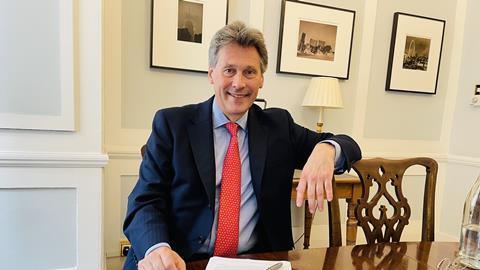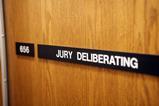Interview with Monidipa Fouzder
I meet Simon Beccle at Payne Hicks Beach’s office in New Square, in the heart of legal London. Beccle, who joined the firm in 1998, becoming a partner in 2001, has been involved in several high-profile cases, but there is one in particular I want to discuss: White v White.
October marked the 25th anniversary of the House of Lords handing down what Beccle describes as ‘the mother of all financial remedies case law for the last 25 years’.
White v White, as the Law Commission explained in a 2024 scoping paper on financial remedies, rejected the prevailing judicial concept of ‘reasonable requirements’ and introduced the ‘yardstick of equality’ to ensure a fair outcome that did not discriminate between the roles of the spouses as breadwinner or homemaker.
Dairy farmers Mr and Mrs White were married for 33 years and had three children. When their case was heard in the Bristol District Registry of the High Court, the couple had net assets of £4.6m. Mrs White was awarded around 20%. The Court of Appeal raised this to 40%. Both parties appealed. The Lords’ ruling introduced the yardstick of equality, but Mrs White’s award remained at 40%.
Beccle explained: ‘There were two farms and some money. Mrs White wanted one of the farms. If she got the bigger farm, she would have a smaller lump sum of money. If the smaller farm, a bigger lump sum. She got neither. She just got a lump sum… which equated to 40% of what was in the pot.’
On how he got involved in the case, Beccle said the father of a trainee at Payne Hicks Beach was a friend of Mrs White’s. Mrs White approached the firm following the Court of Appeal’s decision. ‘We go and see James Munby QC, who was based across the square. He is instructed to prepare a notice of appeal. Mr White was dissatisfied with the judgment, and he instructs through his firm in Taunton and Nicholas Mostyn QC. Both parties apply for permission to appeal.’
'People say divorce is nasty and unpleasant. I say most of it is not. Most people I act for have moved on'
Permission was granted. Munby then joined the High Court bench. ‘We have permission to appeal to the highest court in the country and we have not got a barrister. We needed another barrister also capable of thinking outside the box.’
Step forward James Turner QC. ‘James Turner came up with the idea and the law as it is now, that there should be a principle of equality unless there is good reason for there to be a departure,’ Beccle said.
On 26 October 2000, the House of Lords handed down its judgment. Beccle and then junior counsel Philip Marshall picked up two copies of the judgment from the House of Lords and read it in the taxi on the way back to New Square. They faxed copies to Mr White’s lawyers and Mrs White.
The case was hardly reported at the time, Beccle recalled. ‘The news and media were not very interested in it. There was no social media.’
Contrast this with Owens v Owens in 2018. Beccle represented Tini Owens. ‘People were wanting to shove a microphone in front of Mrs Owens’ face. It was all over social media. I ended up being quoted on the front page of The Times and Telegraph.’
Beccle said there were cases before White that ‘tried to knock on the door to move the law forward. I was lucky to have the right case at the right time. Societal views had moved on. The traditional model of husband and wife in a marriage had changed significantly’. White and post-White cases ‘have always been about refining and defining what entitles a party to depart from equality’.
Beccle did his articles at Gordon Dadds (‘they were the pre-eminent family law firm in the 1970s and 1980s’) and qualified as a solicitor in 1990. ‘I loved litigation and private client. What was the best combination of both? Family.’
He enjoys the ‘people element and acting for people, helping them move forward with their lives. People say divorce is nasty and unpleasant. I say most of it is not. Most people I act for have moved on. All they need is help to shut that door in their lives, tie up the loose ends and they can move on’.
Beccle is proud to have been involved in ‘groundbreaking’ decisions. ‘I have, and continue to have, a fabulous career. I love it.’





































No comments yet